UNCREATIVE WRITING
UNCREATIVE WRITING
Managing Language in the Digital Age
Kenneth Goldsmith
 COLUMBIA UNIVERSITY PRESS New York
COLUMBIA UNIVERSITY PRESS New York
Columbia University Press
Publishers Since 1893
New York Chichester, West Sussex
cup.columbia.edu
Copyright 2011 Columbia University Press
All rights reserved
E-ISBN 978-0-231-50454-6
Library of Congress Cataloging-in-Publication Data Goldsmith, Kenneth.
Uncreative writing: managing language in the digital age / Kenneth Goldsmith.
p. cm.
Includes bibliographical references and index.
ISBN 978-0-231-14990-7 (cloth: acid-free paper)ISBN 978-0-231-14991-4 (pbk.: acid-free paper)
1. Literature and technology. 2. Creation (Literary, artistic, etc.) 3. Creative writingData processing. 4. Creative writingStudy and teaching. 5. AuthorsEffect of technological innovations on. 6. Literature and the Internet. 7. Modernism (Literature)History and criticism. 8. Poetics. I. Title.
PN1031.G638 2011
808.002854678dc23
2011003302
A Columbia University Press E-book.
CUP would be pleased to hear about your reading experience with this e-book at .
References to Internet Web sites (URLs) were accurate at the time of writing. Neither the author nor Columbia University Press is responsible for URLs that may have expired or changed since the manuscript was prepared.
i had always had mixed feelings about being considered a poet
if robert lowell is a poet i dont want to be a poet
if robert frost was a poet i dont want to be a poet
if socrates was a poet ill consider it
DAVID ANTIN
CONTENTS
Several of the essays in this book were inspired by pieces initially commissioned by the Poetry Foundation, where they appeared as a weeklong journal on their site in January 2007; other ideas were developed on their blog, Harriet. Id like to thank Emily Warn, who after hearing my talk at Marjorie Perloffs MLA Presidential Panel in 2006, offered to publish it on the foundations site, which has resulted in a long and happy collaboration. My thanks also to Don Share, Christian Wiman, Cathy Halley, and Travis Nichols for their open-mindedness and continuing support.
Portions of Language as Material appeared in New Media Poetics (Cambridge: MIT, 2006) and was first written for the New Media Poetry Conference in October 2002 at the University of Iowa. Other parts of the chapter were given at Digital Poetics at SUNY Buffalo in 2000. Infallible Processes: What Writing Can Learn from Visual Art evolved from two gallery talks commissioned by Dia:Beacon in 2008 and 2009. An early version of Why Appropriation? was given for the untitled:speculations, a CalArts conference held in 2008 at the Disney REDcat Theatre and again at Cabinet Space in 2009 in Brooklyn.
Originally this book began as a project on sampling with Marcus Boon, but ended up splitting into two separate boks, Uncreative Writing and Boons great In Praise of Copying . Although the two books map different territories, they both stem from the same ten days between Christmas and New Years almost a decade ago.
This book developed over years of conversation with my peers, many of whom I write about here. Without this decade-and-a-half-long ongoing discourse, this book in its present form would not exist.
Thanks the University of Pennsylvania for allowing these words to be put into practice. In particular, Im grateful for the support of Al Filreis and Charles Bernstein at the Center for Programs in Contemporary Writing and to Claudia Gould and Ingrid Schaffner at the Institute of Contemporary Art.
Id like to acknowledge Princeton Universitys Department of American Studies for granting me their Anschutz Distinguished Professorship in the winter of 2009, which provided the support and environment where these ideas could take root. Thanks to Princetons Hendrik Hartog and Susan Braun.
At Columbia University Press, the careful efforts of Susan Pensak made this a stronger book. And I cant thank my editor, Philip Leven-thal, enough for reading this book closer than it deserved to be read, for shaping it, saving it, and for giving me the opportunity to see it into print. His challenges and provocations pushed this book to places Id never imagined.
The patience and devotion of my wife Cheryl Donegan, along with the feisty playfulness of my sons Finnegan and Cassius, made for a rock-solid writing environment over the years it took to pen this.
Special thanks to Marjorie Perloff for her continuing support to the most extraordinary degree. My admiration and gratitude for her work never ceases.
And finally, this book is dedicated to the six guys, all in a line, all basically the same age, same stocky build, same bad haicuts [ sic ], and black T-shits [ sic ]. You know who you are.
In 1969 the conceptual artist Douglas Huebler wrote, The world is full of objects, more or less interesting; I do not wish to add any more. Ive come to embrace Hueblers ideas, though it might be retooled as The world is full of texts, more or less interesting; I do not wish to add any more. It seems an appropriate response to a new condition in writing today: faced with an unprecedented amount of available text, the problem is not needing to write more of it; instead, we must learn to negotiate the vast quantity that exists. How I make my way through this thicket of informationhow I manage it, how I parse it, how I organize and distribute itis what distinguishes my writing from yours.
The literary critic Marjorie Perloff has recently begun using the term unoriginal genius to describe this tendency emerging in literature. Her idea is that, because of changes brought on by technology and the Internet, our notion of geniusa romantic isolated figureis outdated. An updated notion of genius would have to center around ones mastery of information and its dissemination. Perloff has coined a term, moving information , to signify both the act of pushing language around as well as the act of being emotionally moved by that process. She posits that todays writer resembles more a programmer than a tortured genius, brilliantly conceptualizing, constructing, executing, and maintaining a writing machine.
Perloffs notion of unoriginal genius should not be seen merely as a theoretical conceit but rather as a realized writing practice, one that dates back to the early part of the twentieth century, embodying an ethos where the construction or conception of a text is as important as what the text says or does: Think, for example, of the collated, note-taking practice of Walter Benjamins Arcades Project or the mathematically driven constraint-based works by the Oulipo. Today, technology has exacerbated these mechanistic tendencies in writing (there are, for instance, several Web-based versions of Raymond Queneaus 1961 laboriously hand-constructed Hundred Thousand Billion Poems ), inciting younger writers to take their cues from the workings of technology and the Web as ways of constructing literature. As a result, writers are exploring ways of writing that have been thought, traditionally, to be outside the scope of literary practice: word processing, databasing, recycling, appropriation, intentional plagiarism, identity ciphering, and intensive programming, to name but a few.
In 2007 Jonathan Lethem published a pro-plagiarism, plagiarized essay in Harpers entitled, The Ecstasy of Influence: A Plagiarism. Its a lengthy defense and history of how ideas in literature have been shared, riffed, culled, reused, recycled, swiped, stolen, quoted, lifted, duplicated, gifted, appropriated, mimicked, and pirated for as long as literature has existed. In it he reminds us of how gift economies, open source cultures, and public commons have been vital for the creation of new works, with themes from older works forming the basis for new ones. Echoing the cries of free culture advocates such as Lawrence Lessig and Cory Doctorow, he eloquently rails against current copyright law as a threat to the lifeblood of creativity. From Martin Luther King Jr.s sermons to Muddy Waterss blues tunes, he showcases the rich fruits of shared culture. He even cites examples of what he had assumed were his own original thoughts, only later to realizeusually by Googlingthat he had unconsciously absorbed someone elses ideas that he then claimed as his own.

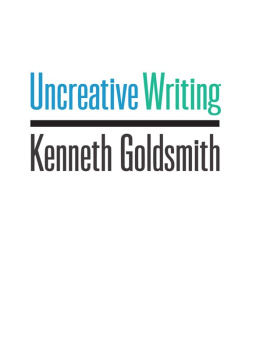


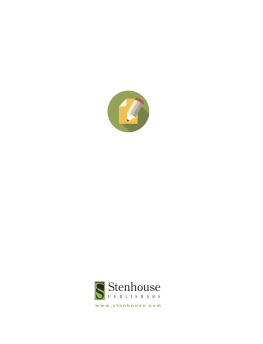
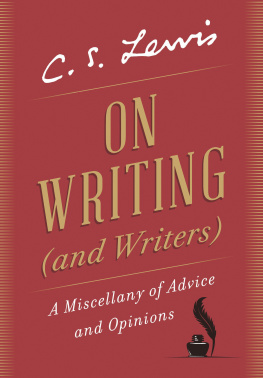
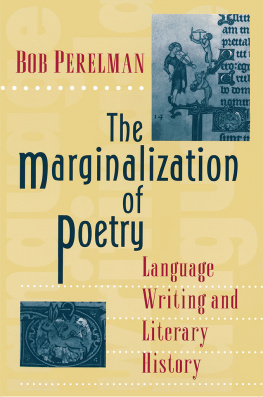
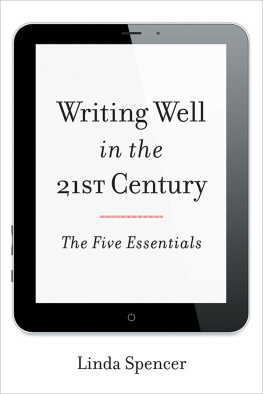
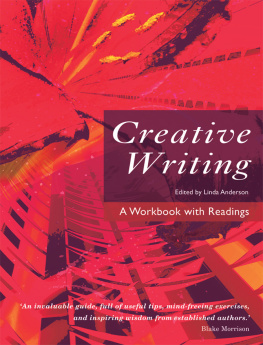
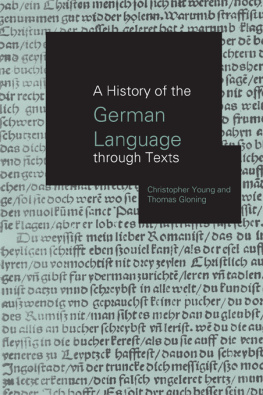
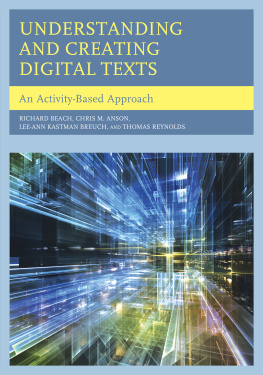
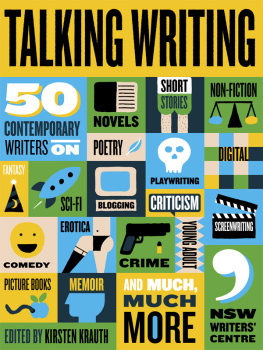

 COLUMBIA UNIVERSITY PRESS New York
COLUMBIA UNIVERSITY PRESS New York